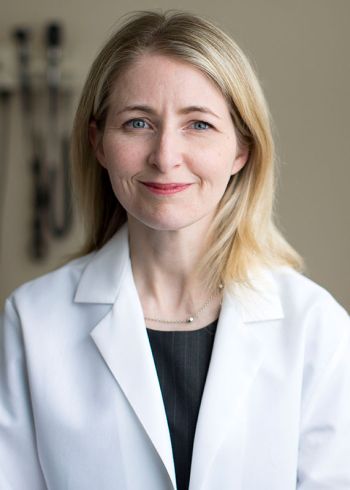
WASHINGTON (Nov. 21, 2016) — Patients with chronic wounds who never receive opioids heal faster than those who do receive the drugs, according to a new study by George Washington University (GW) researcher Victoria Shanmugam, M.D.
Published in Wound Repair and Regeneration, the data suggests that opioid exposure is associated with reduced likelihood of healing in patients with chronic wounds. While there is a strong correlation, whether this is a causal relationship will require further research.
“Opioid analgestics are commonly prescribed to patients with chronic wounds, but until now, little to no research had been done to determine the relationship between opioid treatment and wound healing,” said Shanmugam, associate professor of medicine at the GW School of Medicine and Health Sciences. “It seems that exposing patients to opioids may impact ultimate wound outcome. More work needs to be done to understand this finding and the possible mechanisms driving it. We look forward to continuing this research, which may lead to faster healing and improved patient outcomes.”
Shanmugam and her research team studied 450 subjects enrolled in the WE-HEAL biorepository. Data was collected using baseline characteristics, such as pain score, longitudinal opioid exposure, and total wound surface area. Opioid dose was found to be significantly associated with total wound surface area.
Chronic wounds are those that have failed to heal after three months of appropriate wound care. Approximately 6.5 million people in the U.S. experience chronic wounds. They cause considerable pain, affecting patient well-being and quality of life, and significantly impact their mortality. Additionally, costs associated with chronic wounds are estimated at $25 billion per year.
“Finding ways to improve healing of chronic wounds will have an enormous effect on patients and the healthcare system,” said Shanmugam.
GW researchers Kara S. Couch, M.S., CRNP, CWS; Sean McNish, M.S., CRA; and Richard L. Amdur, Ph.D., are co-authors for this study. The study was primarily funded by the National Institute of Nursing Research, the National Center for Advancing Translational Sciences, and the National Institutes of Health through the Clinical and Translational Science Awards Program.
“Relationship between Opioid Treatment and Rate of Healing in Chronic Wounds” is published in Wound Repair and Regeneration.


